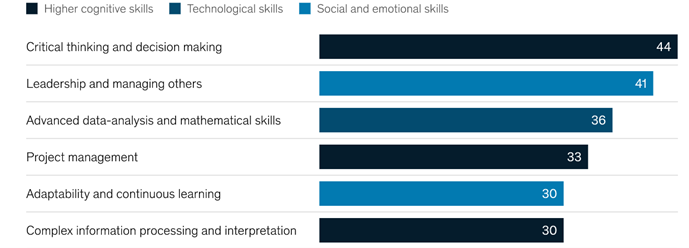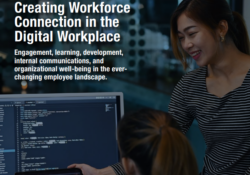Beginning in 1948, U.S. historians have sought to rank order the performance of individual presidents. Despite a wealth of qualitative research into presidential achievements, criteria are highly subjective for assessing comparative performance. In spite of this, periodic studies are remarkably consistent in their rankings, with the three presidents commonly rated as most effective being Abraham Lincoln, Franklin D. Roosevelt, and George Washington.
Rather than evaluating performance after the fact, HR professionals might instead ask “can we predict the likelihood that a candidate might be a successful president?” As we do thousands of times a day with candidates going through a recruiting process, HR would consider the qualifications required for the role and how each candidate measures up.
For example, one of the more obvious factors that HR might evaluate is prior experience – the extent to which a person aspiring to be President has performed similar (if less extensive) duties in a related position such as state governor or member of the U.S. Senate, one that might be a proving ground for the future president.
In one such study, researchers compared effectiveness in office to the individual’s prior experience in “feeder” positions including Vice-President, State Governor, U.S. Senator, U.S. Representative, State Representative, Military General, and Cabinet Official.
The results were fascinating. Lincoln possessed ten years of related experience – mainly in the Illinois House of Representatives – before becoming the nation’s 16th president in 1861. George Washington was even more credentialed, having 24 years of experience in the Virginia legislature and as a General in the United States Army. Franklin D. Roosevelt is somewhat of an anomaly; his tenure as a member of the New York State Senate and subsequently Governor of New York totaling only six years.
Even more interesting is the contrasting fortunes of James Buchanan. Lincoln’s predecessor is generally rated as the second-least effective president of all time, with only William Harding faring worse – this despite being the most experienced individual ever to have held the nation’s highest office. Among his prior roles were service in the U.S. House and Senate, Ambassador to Russia and the United Kingdom, and Secretary of State. He even declined a position on the U.S. Supreme Court!
Experience in Similar Roles is Not Sufficient to Guarantee Success in the Next Job
If not prior experience, what then explains the success of Lincoln, FDR, and Washington and Buchanan’s failures? The uniqueness and scope of the office places a premium on adaptability, flexibility, reasoned thinking, and the ability to make effective decisions in high-pressure situations.
It could be argued that the most effective triumvirate where known for such qualities. Likewise, in today’s fast-paced business environment, experience in prior roles may be important, but it is the ability to evolve one’s thinking and knowledge that may be the difference between success and failure on the next rung up the career ladder.
The Skills Gap and the Importance of New Knowledge
In February 2020, McKinsey & Company published a study entitled “Beyond Hiring: How Companies are Reskilling to Address Talent Gaps” which looked critically at the looming skills shortage and how organizations are using multiple tactics to anticipate and address such deficits.
The survey of 1,200+ business leaders found that the business areas facing the greatest need for talent include IT, HR, and Talent Management (see below), which also happen to be the nucleus of IHRIM members.
Business Areas With Critical Skill Gaps

The study presents data illustrating that the “quick fix” solution to talent gaps – hiring – may mask the problem but not address the underlying causes in a sustainable manner; instead, reskilling current employees is a less expensive, more effective solution. Reskilling tends to focus on building new knowledge and aptitudes, such as critical thinking & decision-making, adaptability & continuous learning, and complex information processing (see below), skill types that previous McKinsey research has found will be in high demand in the future.
Skills Prioritized In Reskilling Programs

In the theme of reskilling, in late 2020, IHRIM ran a five-part webinar series on career development which looked holistically at the demand and supply of talent, from differentiated competencies being sought by hiring managers to showcasing your transferable skills. With numerous events devoted to software-first presentations, we saw strong interest in education that centers on all facets of the HR technology career, not just purchasing products.
What’s Next? Taking the Next Step in Your Career-Path
Armed with the knowledge that past experience is not always a predictor of future performance, and that demand is high for cognitive and social skills within the fast-growing IT, HR, and Talent Management domains, IHRIM is excited to announce a new virtual event for career development in HR technology: Sunrise to Sunset.
On August 11th, IHRIM will feature twelve full hours of content delivered via an innovative approach to learning and sharing information and insights into the HR technology profession and career from entry (sunrise) through exit (sunset). The schedule allows for global reach, engaging current and future professionals from around the world.
Our Education team has divided the content into four topics:
- Entry – Entering the modern HR technology organization via examples of a “day in life”
- Evolve – Taking control of your career, balancing professional and personal commitments
- Engage – Managing complex projects, diverse teams, and taking on strategic leadership responsibility
- Egress – Building the next generation of HR technology specialists and extending your influence
The strength of any event is not only the roster of speakers but the method by which we engage the audience – a cross-section of current & future HR technologists and their peers in HR, IT, and the software ecosystem – and we will deliver a program that emphasizes dialog, networking, crowd-sourced ideas, and long-lasting friendships.
During the pandemic, employees are working longer hours and many parents are putting in extra shifts on the weekend. Career development has taken a back seat to the paramount importance of supporting our colleagues and adjusting to the new realities of work.
On August 11th, take time for yourself and your career; join us at the Sunrise to Sunset event.
Recent Publications and Presentations:
“Wanted: Workforce Data That Actually Drives a Decision”, HR Tech Outlook, November 2016
“Measuring the Value of Both Types of Diversity”, TLNT, October 2016
“Executive Interview With Al Adamsen”, Talent Analytics & Future of Work Podcast, August 2016
“Data Ethics and Enterprise Analytics”, SAP SuccessFactors Survey, June 2016
“Time to Rebrand Strategic Workforce Planning?”, Human Capital Institute, October 2015
“Time to Upskill: Core Competencies for Workforce Analytics”, SAP Insider, July 2014
“The Business Case for Workforce Analytics in the Cloud”, SuccessFactors, June 2014
“Change Your Company With Better HR Analytics”, Harvard Business Review Online, December 2013


